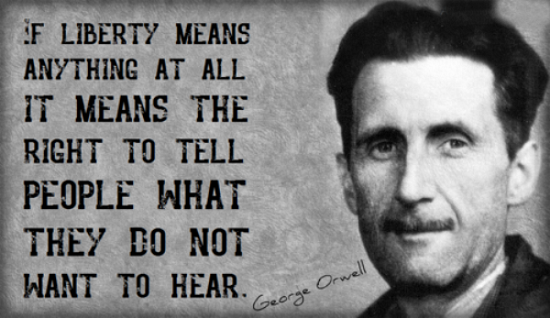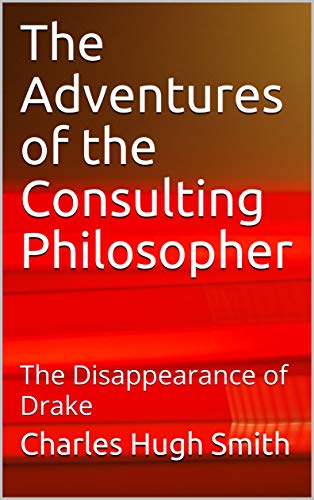What’s scarce in a world awash in free content and nearly infinite entertainment content?
After 3,701 posts (from May 2005 to the present), here are my observations of the Alternative Media from the muddy trenches.
It’s increasingly difficult to make a living creating content outside the corporate matrix. The share of advert revenues paid to content creators / publishers has declined precipitously, shadow banning has narrowed search and social media exposure and the expansion of free content and competing subscription-based publishing has made subscription services an increasingly tough sell.

George Orwell
The most effective ways to silence critics and skeptics is to 1) de-monetize their sites / platforms and 2) restrict their access to the public via shadow banning and search algorithm “adjustments.” The two are related, of course; as audiences dwindle, so do revenues and opportunities to sell subscriptions or promote patronage.
The corporate media’s lumping of all alternative media in with “fake news” and troll-farms has intentionally tarnished all alternative media, as undermining independent journalism and commentary is an essential part of unifying public opinion behind “approved” ideologically uniform narratives.
Significant swaths of the public get their “news” and commentary solely from social media (Facebook and Twitter, and to a lesser degree, Instagram) or a handful of corporate media (which included PBS/NPR). As these channels limit / delegitimize alternative media voices, the public’s access to alternative analysis and commentary diminishes even further.
A few quasi-monopolistic corporations have effectively become gatekeepers: what’s approved is allowed to be viewed / heard / read, what raises eyebrows effectively disappears.
It’s become increasingly difficult to make a living writing books. Advances for established authors have fallen from $10,000 or $20,000 to $2,500 or $1,000, and in the academic publishing world, $1,000 may be the entire sum paid to the author for writing a book.
Are people reading fewer books as video and entertainment content expand exponentially? Perhaps. Or are people reading whatever is free rather than buying ebooks/print books? There are likely multiple factors at work, but the bottom line is the Pareto Distribution is visible in the “long tail” of thousands of content creators who receive very little in the way of earnings and a handful at the top of the distribution who capture the lion’s share of all royalties and other income.
What’s scarce in a world awash in free content and nearly infinite entertainment content? Fresh, independent insight is eternally scarce, and in a world in which almost everyone is selling a cover story to secure their spot at the corporate-state trough (or win the approval of their social-media “tribe”), authenticity is also scarce.
The economic-financial value of insight and authenticity are unknown; the market doesn’t price these as it does commodities such as “news”. It’s left to individuals to assess and establish the economic-financial value independent journalism and commentary.
My new book is The Adventures of the Consulting Philosopher: The Disappearance of Drake. For more, please visit the
book's website.
Tags:
Featured,
newsletter


